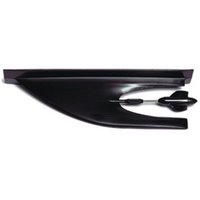 This is the second posting in the series on GPS in rowing.
This is the second posting in the series on GPS in rowing.Frank Biller is charge of World Sales of Watersport and Timing Instruments for Nielsen-Kellerman (NK) and also happens to frequent the Rowers World Forum, was kind enough to offer some comments on behalf of NK for this series. In his comments he refers to "the study" by Volker Nolte. I will post some comments about the study in the next few days.
"...I am more on the user side than the development. However, being a small company and having long background in the sport, I do a fair amount of development as well.
GPS would be great, for obvious reasons. Unfortunately, the technology is not accurate enough for speed measuring of boats (rowing and paddling). Perhaps in the future there will be a solution that is affordable and more useful. In addition, no matter how high the signal frequency, it does not eliminate the "current issue" when rowing on water with current (which by the way includes many lakes as well).
...I think the study gives you a great overview on why we don't use and recommend GPS. Perhaps in the future we may incorporate it with the impeller for a combination, e.g. speed measurement with impeller, distance measurement with GPS on standing water, as well as a calibration routine that runs in the background. But then again, we are in a budget tight sport, and costs go up very fast.
The impeller is truly a great method for measuring boat speed versus the water. Depending on the speed of the hull it measures the speed around 100 times per stroke and averages the measurements exactly per stroke and displays it as such. Due to high variance in speed throughout the stroke this is important, as single readings do not provide much useful information. In addition, it's cheap, easy to install, produces very minimal drag (0.2 % in a single, less in bigger boats) and is being used by almost every top crew internationally."
This seems to sum up NK's position nicely, and I'm thankful that Frank was kind enough to offer his thoughts. It is intriguing to think of a combination device that includes GPS and the impeller - did Frank let some development work slip, or is this just wishful thinking? I have also been granted an interview with one of the NK developers and I should be able to follow up soon with more details on this posting and more. I have some plans for that interview that don't relate to the GPS question - but I'll keep that one quiet for now and just suggest that you stay tuned for more exciting things soon.
I would encourage readers to look at the comments for yesterdays post which include some interesting thoughts from experienced, and enthusiastic, GPS using rowers. I will include some of them in the summary posting for the series.
